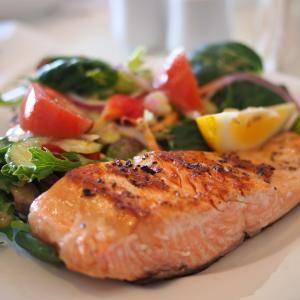What To Look For And Avoid In Self-Help Anxiety Books
Self-help books for anxiety are very popular--so popular that the sheer number of books available can be overwhelming. All those choices mean that there are some really great books out there, but also means that they can be harder to pick out. Here's what you need to know when you are shopping for anxiety books:
Are self-help books for anxiety effective?
A number of meta-analysis studies have found that therapy using books (bibliotherapy) more effective than a placebo and actually approaches the effectiveness of professional treatment with a therapist. Many therapists also "prescribe" self-help books to be used along with traditional therapy. They are a very cost-effective approach to treatment and help to engage you more actively in your treatment.
What should I look for in an anxiety self-help book?
A 2008 research paper (Popular self-help books for anxiety, depression, and trauma: How scientifically grounded and useful are they? by Redding, RE, et al.) looked at the 50 top-selling self-help books for anxiety, depressive, and trauma-related disorders as identified by Amazon.com and the bookstores Borders and Barnes & Noble and had psychologists rate them on the following criteria: overall usefulness, grounding in psychological science, reasonable expectations, specific guidance, and potentially harmful advice.
The researchers found that the best books had certain characteristics in common. They were usually written by mental health professionals with a doctoral degree, had a cognitive-behavioral perspective, focused on specific problems, and cited scientific literature. The top 5 books (listed below) met all these criteria and happened to all focus on a type of anxiety disorder (OCD or social phobia).
The 5 lowest rated books (listed below) were not based on scientifically proven approaches and tended to be less focused, trying to cover multiple problems instead of going in-depth on a particular disorder. The authors were not always mental health professionals and tended not to be affiliated with an academic organization.
Books to try:
- The OCD Workbook (Hyman, B.M.)
- Dying of Embarrassment (Markway, B.)
- The Shyness & Social Anxiety Workbook (Antony, M.M.)
- Overcoming Compulsive Hoarding (Neziroglu, F.)
- Stop Obsessing! (Foa, E.B.)
Books to avoid:
- Instant Self-Hypnosis (Blair, F.R.)
- Tapping the Healer Within (Callahan, R.)
- Waking the Tiger: Healing Trauma (Levine, P.A.)
- From Panic to Power (Bassett, L.)
- How to Win Over Depression (La Haye, T.)
Source: Popular self-help books for anxiety, depression, and trauma: How scientifically grounded and useful are they? by Redding, RE, et al.
Photo: Pexels







